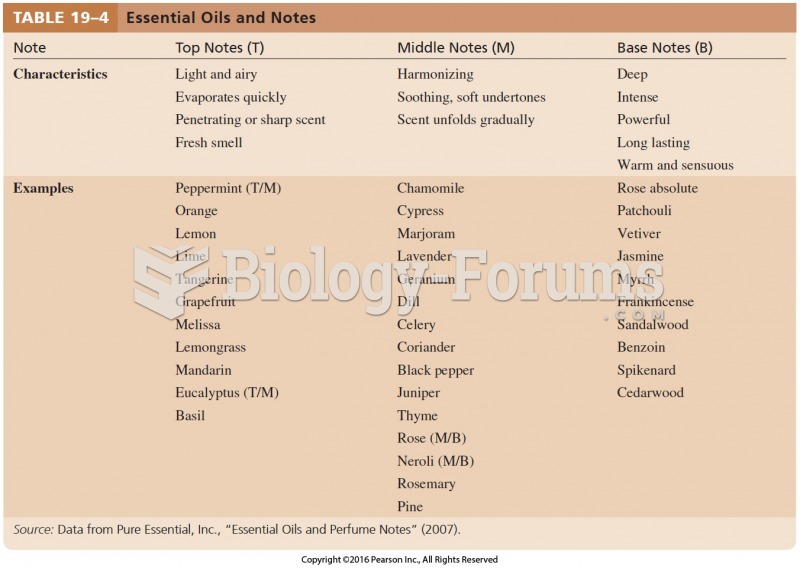|
|
|
More than 150,000 Americans killed by cardiovascular disease are younger than the age of 65 years.
Coca-Cola originally used coca leaves and caffeine from the African kola nut. It was advertised as a therapeutic agent and "pickerupper." Eventually, its formulation was changed, and the coca leaves were removed because of the effects of regulation on cocaine-related products.
The people with the highest levels of LDL are Mexican American males and non-Hispanic black females.
The average office desk has 400 times more bacteria on it than a toilet.
To maintain good kidney function, you should drink at least 3 quarts of water daily. Water dilutes urine and helps prevent concentrations of salts and minerals that can lead to kidney stone formation. Chronic dehydration is a major contributor to the development of kidney stones.







